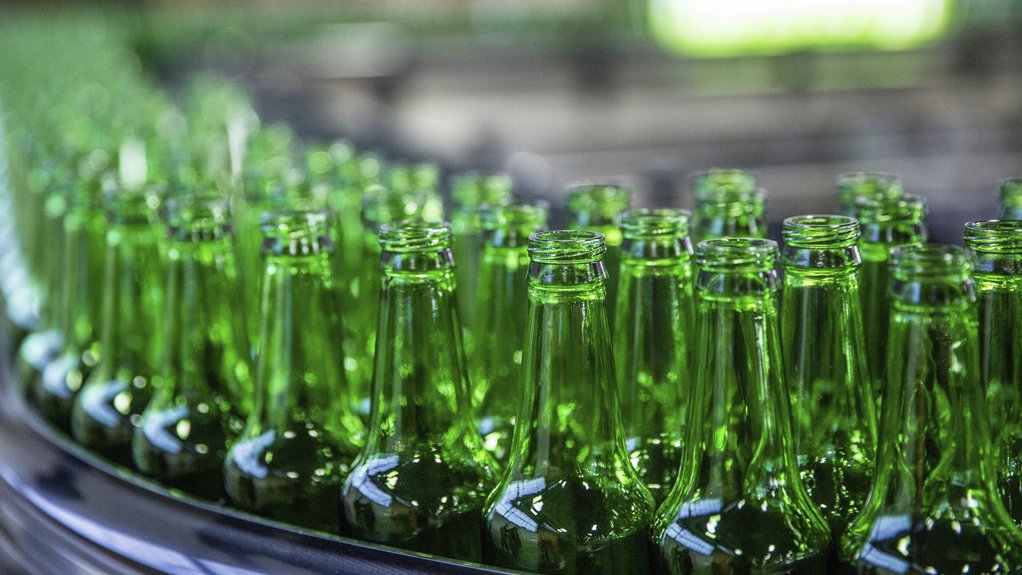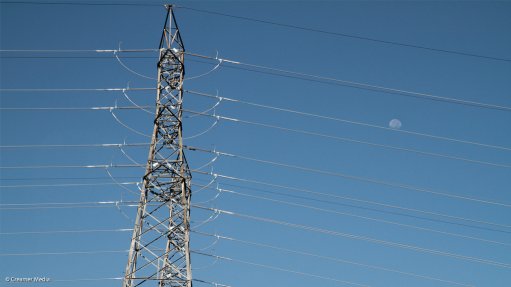South African beverage sector aiming for cleaner production


CLEANER AND GREENER The food and beverage industry should explore how to be part of the transition to green enterprise and green economy
National Cleaner Production Centre South Africa (NCPC-SA) is joining forces with nonprofit organisation Beverages Association of South Africa (Bevsa) to support and accelerate its members’ efforts to reduce their carbon emissions, save water, limit waste and embrace renewable energy and green technologies.
Bevsa’s partnership with NCPC-SA, and more broadly South Africa’s national research organisation the Council for Scientific and Industrial Research (CSIR), should be formalised in the next few weeks.
Through this partnership, Bevsa’s members, which include large and small beverage manufacturers, will have their production processes reviewed by NCPC-SA to identify areas of possible improvement, says Bevsa COO Mpho Thothela.
The partnership will also explore research and development opportunities for the sector through the CSIR and how the NCPC-SA and the council can find innovative solutions to some of the challenges the sector and its supply chains face.
These challenges include the retrofitting of beverage company fleets with more environment-friendly technology and possible alternative uses for sugar, since sugar producers are beginning to feel the effects of the sugar tax, explains Thothela.
NCPC-SA project manager Podesta Maepa tells Engineering News that energy and water consumption form a large part of the food and beverage industry’s input costs.
“By managing these resources and keeping them at a minimum, companies in the industry can lower their input costs, creating opportunities to increase their profit margins for possible growth and expansion.”
South Africa is a water-scarce country. Even though water is regarded as relatively cheap, the country is in a lot of distress owing to water shortages, Maepa stresses.
She explains that, during production, the food and beverage industry tends to generate a substantial amount of heavily contaminated wastewater and, in some instances, production accounts for about 40% of the total water consumption on site, with 60% becoming effluent.
“Wastewater also has an adverse impact on the environment, causing pollution of water streams and the degradation and destabilisation of the ecosystem. Therefore, it is crucial for industry to decrease the use of fresh water and limit the generation of wastewater to, thus, reduce disposal costs and avoid municipal fines imposed on companies that dispose of untreated wastewater through the municipal main.”
Maepa says, as most food and beverage companies are energy-intensive, there are significant cost implications for their businesses, while they also account for high carbon emission levels.
“Energy efficient equipment should be used to reduce energy use. Industry can start replacing conventional lighting with light-emitting-diode lighting, as it uses much less energy, has a longer life span and is much more environment friendly.”
Since most food and beverage companies are heavy users of steam and process heating, there is also great potential to lower energy consumption through energy system optimisation, which includes reviewing compressed air, steam systems, fan systems and motor systems, Maepa notes.
However, scheduled maintenance and energy management plans remain essential in improving energy efficiency.
South Africa’s new carbon tax, introduced this year, will also lead to increased cost of production in the local food and beverage industry, although it is still too early to determine the full impact thereof.
“The carbon tax will have the biggest impact on the cost of burning coal, with the least impact on the use of liquid fuels, with most companies using coal as a source of energy.”
Companies will be liable from January 2020, with the food and beverage industry subject to an emission threshold of 10 MW.
If the industry is proactive and starts putting mitigation measures in place to limit and reduce its carbon emissions, it will avoid unnecessary tax liability.
Subsequently, the food and beverage industry should take the opportunity to engage with NCPC-SA and explore how to be part of the transition to green enterprise and a green economy through its Resource Efficient and Cleaner Production and Industrial Energy Efficiency project initiatives, concludes Maepa.
Article Enquiry
Email Article
Save Article
Feedback
To advertise email advertising@creamermedia.co.za or click here
Press Office
Announcements
What's On
Subscribe to improve your user experience...
Option 1 (equivalent of R125 a month):
Receive a weekly copy of Creamer Media's Engineering News & Mining Weekly magazine
(print copy for those in South Africa and e-magazine for those outside of South Africa)
Receive daily email newsletters
Access to full search results
Access archive of magazine back copies
Access to Projects in Progress
Access to ONE Research Report of your choice in PDF format
Option 2 (equivalent of R375 a month):
All benefits from Option 1
PLUS
Access to Creamer Media's Research Channel Africa for ALL Research Reports, in PDF format, on various industrial and mining sectors
including Electricity; Water; Energy Transition; Hydrogen; Roads, Rail and Ports; Coal; Gold; Platinum; Battery Metals; etc.
Already a subscriber?
Forgotten your password?
Receive weekly copy of Creamer Media's Engineering News & Mining Weekly magazine (print copy for those in South Africa and e-magazine for those outside of South Africa)
➕
Recieve daily email newsletters
➕
Access to full search results
➕
Access archive of magazine back copies
➕
Access to Projects in Progress
➕
Access to ONE Research Report of your choice in PDF format
RESEARCH CHANNEL AFRICA
R4500 (equivalent of R375 a month)
SUBSCRIBEAll benefits from Option 1
➕
Access to Creamer Media's Research Channel Africa for ALL Research Reports on various industrial and mining sectors, in PDF format, including on:
Electricity
➕
Water
➕
Energy Transition
➕
Hydrogen
➕
Roads, Rail and Ports
➕
Coal
➕
Gold
➕
Platinum
➕
Battery Metals
➕
etc.
Receive all benefits from Option 1 or Option 2 delivered to numerous people at your company
➕
Multiple User names and Passwords for simultaneous log-ins
➕
Intranet integration access to all in your organisation



















